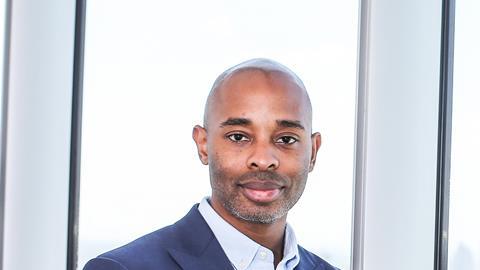Of counsel at Winston & Strawn in London.
My legal career was not a lifelong ambition. In fact, it is my second career. My first was as an engineer designing and manufacturing nuclear reactors for use by the US Navy, which was supposed to be the realisation of my childhood dream of becoming an engineer. However, my university classmates would spend their spare time building and programming robots; my co-workers restored classic motorcycles for fun. They were naturals and in their element as engineers. I was not.
Although I was always curious about how things work and enjoyed the technical education, I realised that enthusiasm for one’s work is an essential component of success. So after working for a couple of years as an engineer, I decided to change course in search of a career that would be more suitable to my nature. Since I had no clue what that could be, I decided to enrol in law school as well as business school in order to expand my career options with hopes of eventually finding the right fit.
US legal training differs significantly from the UK. US legal education generally does not have an undergraduate degree in law. I attended Ohio State University and studied welding engineering – a cross-discipline between materials, mechanical and electronic systems. US legal education does not require (or even have) a conversion course, nor are training contracts part of the system. So, two years after obtaining my undergraduate degree, I enrolled in a four-year JD/MBA at Case Western Reserve University. Following graduate school I took the New York bar exam. I was fortunate to secure a position at a large firm before graduating, so after passing the bar I began practising in Washington DC as a first-year associate.
When I began my legal career my practice area was in the nuclear energy industry sector. As a junior associate, I mainly advised US utility companies on licensing and regulatory issues related to the construction of new commercial nuclear power facilities. This was an obvious fit because I was able to contribute my technical education, experience and industry knowledge to helping clients navigate thorny regulatory issues. Although my role as regulatory counsel was chiefly limited to licensing and approval matters, I was exposed to the contractual and transactional aspects of large-scale energy projects. I discovered that I enjoyed assembling the framework of interlocking contracts necessary for complex energy and infrastructure schemes.
As a project development lawyer I advise clients on energy and infrastructure projects in the Middle East and Africa. With these regions as my focus, shifting from New York to London in 2015 was incredibly beneficial. Clients appreciated my improved proximity and greater accessibility. On the other hand, re-establishing one’s professional reputation and building a network in a new city is difficult. Fortunately, having relocated to Abu Dhabi in 2009 and Tokyo in 2011 I had experience in international transitions.
The most rewarding part of my practice is that the successful outcome of my effort matters on a human scale. Access to clean water and electricity are essential for a functioning society; as are jobs that can help grow a country’s middle class. I am privileged to be able to contribute my education and experience to projects that deliver these core essentials. The most challenging aspect is not being able to do more, particularly in sub-Saharan Africa. While there is a strong need for power projects, the private sector has not yet fully risen to the occasion to meet the demand.
An area where I would like to see enhancement, rather than change/reform, is intra-Africa trade. In March over 40 African governments signed a continent-wide free trade agreement under which they committed to cut tariffs to zero and eliminate non-tariff barriers to trade. Trade drives industrialisation across the continent. For example, a gradual reduction in trade barriers could help reduce the export of raw materials by making regional supply chains and manufacturing on the continent more economical. In which case, perhaps economies heavily reliant on extractive resources revenue could further diversify their economies.
The African Continental Free Trade Area will come into force after ratification by 22 of the signatory states. Its success will require African governments to continue their focus on the other constraints to intra-African trade. Relevant to my area of law is the constraint caused by deficiencies in trade-related physical infrastructure such as ports, roads, rail, pipelines and so on. A personal motivation is that the work I do to develop energy and infrastructure projects, in some small way, promotes economic and social development.
































No comments yet